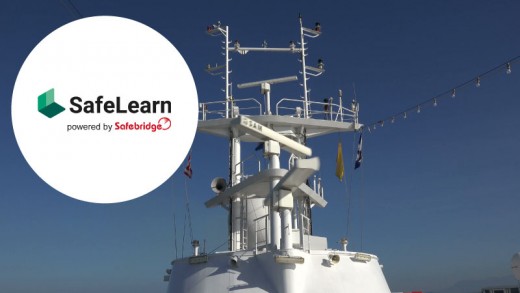Safebridge Shop Beta Release Disclaimer
XBy using the beta version of the Safebridge online shop platform (for the purposes of this disclaimer hereinafter referred to as the “Platform”) you accept that:
- You are bound by the Safebridge Terms and Conditions, the Terms of Use, Data Protection Declaration, and Privacy Policy listed provided at www.safebridge.net/legal
- The Platform may have bugs which may affect the user experience. If you experience any issues please report them to us by completing the contact form located here.
Please note that the Safebridge shop will be upgraded and replaced by Trainingportal. To purchase your online training courses, visit www.trainingportal.com
Radar Basics: Technical Background
Understanding the technical basics of Radar provides insights into the physical principles and technical workings of radar equipment. The training course is based on the book “Radar Basics”, written by Volker Wenzel and Marcus Wöster.
Navigation
 Course Description
Course Description
Radar is one of the essential components of modern navigation as it provides a picture of the vessel’s surroundings, through independent means, during the day, at night and in nearly all kinds of environmental conditions.
To understand the potential and limitations of radar systems, it is crucial for the user to know the technical basics. The radar working principle and the fundamentals about radar radio waves are therefore described in full. The functioning of the main components of radar systems is explained and the process of digitalisation and imaging elucidated. An insight is given into detection, size, shape, and the extent of targets.
 Course Objectives
Course Objectives
The aim of the course is to provide technical background knowledge that enables operators to fully understand the potential, as well as the limitations of radar and ARPA equipment on-board.
 Target Audience
Target Audience
Officers who are looking for an easy-to-follow supplement or refresher to their radar and ARPA courses and anyone requiring knowledge of the general features of radar.
 Course Structure
Course Structure
Module 1: Technical Basics
Module 2: Radar Targets
Module 3: Radar and ARPA Failures
 Learning Outcomes
Learning Outcomes
Module 1: Explains different parts of a marine radar system and the physical principles they are based on. It gives a complete overview of the technical workings, from gathering data to delivering a radar picture.
Module 2: Focuses on how different factors and settings affect the displayed radar targets.
Module 3: Prepares the operators for possible failures and enables them to react accordingly.
 Prerequisites
Prerequisites
Required: Basic nautical knowledge.
Note: It is not necessary for you to have a CoC as a navigational watch officer; however, an understanding of terrestrial and electronic navigation is recommended.
 Course Characteristics
Course Characteristics
Course Access: 90 days
Timeframe: Approx. 1 hour and 45 min
Language: English
Certificate: Yes (valid indefinite)
Strong Authentication: No
Daily test attempts: 2
Min % of progress on GuideMe to access TestMe: 70%
Min % of passing the TestMe: 70%
Total test time: 60 min
 Technical Requirements
Technical Requirements
We recommend the use of a wired internet connection when taking this course. Connection via mobile internet is also possible; however, it is considered unstable and might cause the failure of your exam.
Supported Internet Browsers:
Operating Systems:
- Microsoft Windows
- Apple macOS
- Linux,
- Android
- Apple's iOS
Video not available
In order to add the product to the wishlist you must first create one here





